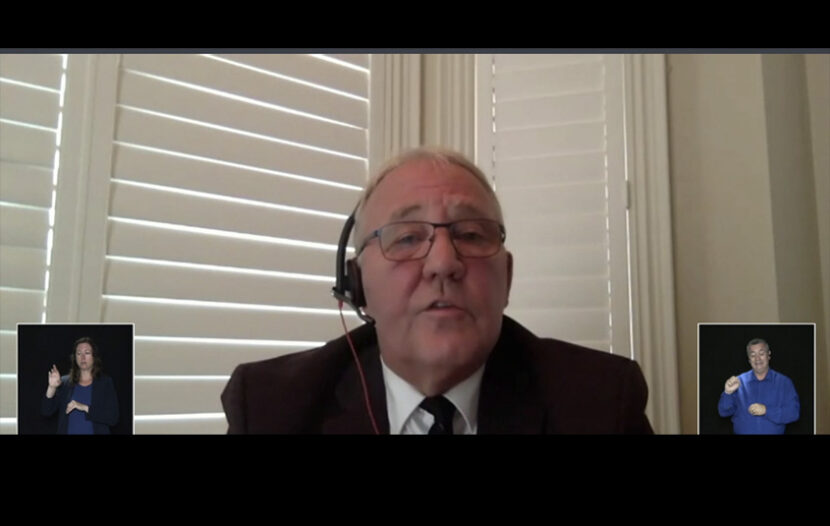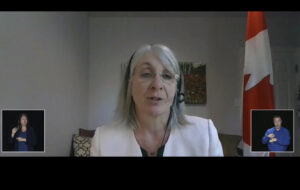TORONTO — Effective July 5, 2021 at 11:59 p.m., fully vaccinated Canadians and permanent residents no longer have to quarantine, and no longer have to complete the day 8 COVID test, in new eased travel measures announced today by Health Minister Patty Hajdu, Minister of Public Safety Bill Blair, Minister of Intergovernmental Affairs Dominic LeBlanc; and Transport Minister Omar Alghabra.
Fully vaccinated Canadians and permanent residents will still need to do pre-arrival and on-arrival PCR tests.
For Canadians and permanent residents who are not fully vaccinated, and for foreign nationals, there are so far no changes to Canada’s border measures.
Today’s announcement is extremely positive news for outbound travel, and of course, for the travel agents and tour operators who serve this market. It’s a blow for inbound travel, i.e. Canadian tourism, as current restrictions remain in place for foreign nationals looking to enter Canada.
Said Health Minister Patty Hajdu this morning: “We can now begin to adjust measures at the border. Beginning on July 5, fully vaccinated travellers who are permitted to enter Canada will no longer be subject to the federal requirement to quarantine, [and] fully vaccinated travellers will not be required to take the COVID-19 tests on day 8, or stay at a government authorized hotel.”
She added: “We will be assessing our own rates of vaccination cases, hospitalizations and outbreaks and the disease activity in the rest of the world. We’ll watch these metrics carefully as we plan the next phase of changes to border measures.”
Minister Blair reiterated Hajdu’s messaging, adding: “The government has implemented strong measures to secure our borders and to keep Canadians safe. These measures have proven to be effective, but of course they were never intended to be permanent.”
Meanwhile, Minister Alghabra said: “We are taking signifiant steps” to restart travel. He added that airport logistics will be adjusted to allow for post-pandemic travel, including separate lines for vaccinated and non-vaccinated travellers, and hinted that more airports will open soon.
Minister Alghabra also said that pre-departure temperature screening for international travellers coming to Canada would also be eliminated. The federal government has also extended its flight restrictions for India. “We will continue to assess the evolving situation and determine appropriate action going forward,” said Alghabra.
WHAT COUNTS AS FULLY VACCINATED?
According to a follow up outline sent out after this morning’s briefing, to be considered fully vaccinated a traveller must have received the full series of a vaccine – or combination of vaccines – accepted by the government of Canada at least 14 days prior to entering Canada. Currently, those vaccines are manufactured by Pfizer, Moderna, AstraZeneca/COVISHIELD, and Janssen (Johnson & Johnson). Travellers can receive their vaccine in any country, and must provide documentation supporting their vaccination in English, French or with a certified translation.
Fully vaccinated travellers must also be asymptomatic, have a paper or digital copy of their vaccination documentation, and provide COVID-19-related information electronically through ArriveCAN prior to arrival in Canada. “They must still present a suitable quarantine plan, and be prepared to quarantine, in case it is determined at the border that they do not meet all of the conditions required to be exempt from quarantine. As with all other exempt travellers, they will be required to follow public health measures in place, such as wearing a mask when in public, keep a copy of their vaccine and test results, as well as a list of close contacts for 14 days after entry to Canada.”
While today’s news is what many in the industry have been waiting 15 months to hear, there’s still the matter of Canada’s advisory against all non-essential travel, in place since March 2020.
“At this time, the government of Canada continues to strongly advise Canadians to avoid non-essential travel. Although the future is looking brighter than it has for a long time with COVID-19 cases on a downward trend and vaccination efforts going well across the country, we can’t let our guard down. Our phased approach to easing border measures is guided by facts, scientific evidence, and the advice of our public health experts. In all that we’re doing in response to this pandemic, our top priority continues to be the health, safety and security of all Canadians,” said Minister Blair.
CANADA’S 2-TRACK SYSTEM OF PROOF OF VACCINATION FOR TRAVEL
Today’s news follows Prime Minister Justin Trudeau’s announcement on Friday that Canada will implement a 2-track system for proof of vaccination, as the country starts the process of reopening travel.
Trudeau announced on June 18 that Canada’s ArriveCAN app, already in use for things like COVID test results and quarantine plans, will get a new update with functionality for uploading vaccination certification. The update will be ready in the coming weeks, he said, and will allow travellers to share a photo of their vaccination record to prove that they can cross the border. “This is not an ideal solution, but it is a solution that we’ll be able to implement quickly,” said Trudeau.
This will be the first track for Canada’s 2-track proof of vaccination system.
The second track is a national solution, hopefully in place by this fall in coordination with the provinces, that will bring in a cross-Canada system of vaccination certification, in coordination with the provinces, for international travel.
Trudeau had noted the federal government’s benchmark targets of 75% of Canadians vaccinated with their first dose, and at least 20% vaccinated with their second dose, before travel restrictions can start to begin to ease. Reports indicate that Canada hit those targets over this weekend.
Trudeau added that Canadians vaccinated with one or two doses of AstraZeneca wouldn’t be at a travel disadvantage. AstraZeneca is currently not included on the FDA’s list of approved vaccines. The UK, a major inbound market for the U.S. has very high rates of AstraZeneca vaccination.
The gradual reopening of Canada’s borders and eased travel restrictions started with the June 9 announcement that hotel quarantine would be eliminated, and home quarantine would be eased, for fully vaccinated Canadians, permanent residents and others with current right of entry, pending negative PCR test results, starting in early July.
Trudeau’s June 18 update came shortly after news that the Canada-U.S. border is staying closed until July 21.
Pressure from both sides to reopen the Canada-U.S. border has escalated in recent weeks, with the high season looming and with travel and tourism businesses facing a second COVID summer with drastically reduced revenues and visitor numbers.
The reopening has been a frustrating guessing game, and estimates from industry experts on both sides are ranging from the extremely optimistic (July 1) to much more pessimistic (Thanksgiving).
Canada’s vaccination rollout, slow to start, has gained impressive momentum in the past several weeks and months.



